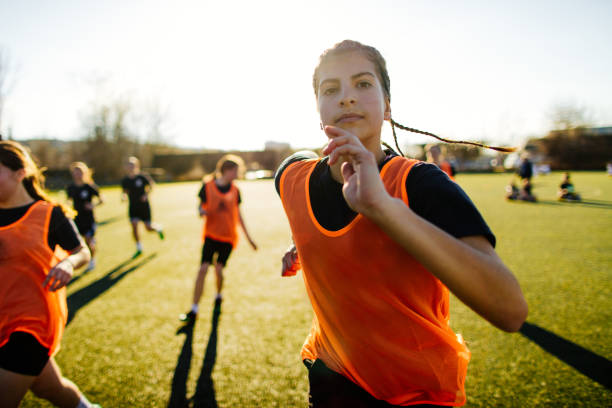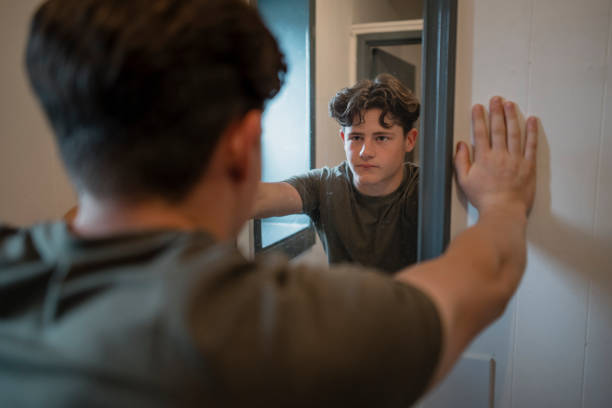Table of Contents
Introduction: Understanding Body Image Issues in Teenagers
Body image issues in teenagers have become increasingly prevalent in today’s society. As adolescents go through physical and emotional changes, they often struggle with their self-esteem and how they perceive their bodies. This struggle can be fueled by external pressures, such as societal beauty standards, social media influence, and peer comparisons. For many teens, these issues can lead to serious challenges that affect their mental and emotional well-being.
During adolescence, the desire to fit in and look like peers often becomes a significant focus, and body image plays a pivotal role in this. Teenagers experiencing body image issues may face feelings of inadequacy, anxiety, and self-consciousness. However, it is essential to address these challenges and help teens develop a healthy relationship with their bodies. This article will explore the causes of body image issues in teenagers, how to overcome these challenges, and offer practical solutions for boosting self-esteem and fostering a positive self-image.
The Impact of Body Image Issues in Teenagers
Body image issues in teenagers can lead to a range of emotional, psychological, and physical difficulties. It is crucial to understand the potential consequences of these issues to provide the necessary support. Here are some ways body image issues affect teenagers:
- Mental Health Struggles: Teenagers dealing with body image concerns are more likely to experience anxiety, depression, and low self-esteem. These feelings can lead to social withdrawal, difficulty concentrating, and poor academic performance.
- Eating Disorders: A poor body image may contribute to unhealthy eating behaviors, such as restrictive dieting, binge eating, or excessive exercise. This can lead to eating disorders like anorexia, bulimia, or binge-eating disorder.
- Social and Emotional Distress: Teens may experience feelings of alienation and self-doubt due to their perceived physical flaws. This can negatively impact relationships with family, friends, and peers, leading to isolation.
- Self-Harm: In severe cases, teenagers struggling with body image issues may resort to self-harm as a way to cope with their emotional pain and dissatisfaction with their appearance.
It is important to note that body image issues are not only about appearance but also the emotional and mental struggles that come with them. Addressing these challenges requires a holistic approach to help teens build a healthy self-image.
Causes of Body Image Issues in Teenagers
Understanding the root causes of body image issues in teenagers is vital in addressing and overcoming them. While every teenager’s experience is unique, several common factors contribute to body image challenges:
- Social Media and Influencers: The rise of social media platforms, where influencers often promote unrealistic beauty standards, plays a significant role in shaping teenagers’ perceptions of their bodies. The constant exposure to edited photos, filters, and curated content can lead to feelings of inadequacy and the desire to conform to unattainable standards.
- Peer Pressure: Adolescents are often influenced by their peers, and comparisons with friends and classmates can contribute to body image concerns. Comments, teasing, or compliments related to weight or appearance can impact how a teen feels about their body.
- Family Influence: Family members, particularly parents, can unintentionally contribute to body image issues by making comments about weight, appearance, or eating habits. These influences can shape how a teen perceives themselves.
- Cultural and Societal Expectations: Society places significant emphasis on physical appearance, especially in the media. This often leads teenagers to believe that their worth is determined by their looks, rather than their talents or character.
- Hormonal Changes: Adolescence is a time of rapid physical growth and hormonal fluctuations. These changes can cause teens to feel out of control or dissatisfied with their changing bodies, contributing to body image struggles.
By identifying these causes, we can better understand the pressures teens face and offer solutions to help them cope with these influences in a healthy way.

How to Overcome Body Image Issues in Teenagers
Addressing body image issues in teenagers requires both understanding and support. The goal is to help teens develop a positive relationship with their bodies and feel confident in their skin. Below are some practical steps to help teenagers overcome body image challenges:
1. Encourage Open Communication
One of the first steps in overcoming body image issues is creating an open line of communication with teenagers. Parents, caregivers, and mentors should foster an environment where teens feel comfortable discussing their feelings about their appearance. This can help teens feel heard and supported, reducing feelings of isolation.
How to Encourage Communication:
- Listen actively and empathetically when teens share their feelings.
- Avoid dismissing or minimizing their concerns, as this can make them feel invalidated.
- Offer reassurance and emphasize that their worth is not based on appearance.
Encouraging teens to express themselves openly can provide them with a sense of relief and help them begin to address their body image concerns.
2. Promote Healthy Body Image Messages
Teens need to learn that healthy bodies come in all shapes and sizes. Promote positive body image messages that emphasize self-love, acceptance, and the importance of health over appearance. Encourage them to focus on their abilities, talents, and what makes them unique, rather than their physical appearance.
How to Promote Healthy Body Image:
- Share messages about diversity in body types and challenge stereotypes.
- Highlight real people and role models who embrace their bodies as they are.
- Focus on health-related goals, such as strength, endurance, and mental well-being.
By promoting healthy body image messages, teenagers can start to shift their focus from appearance-based goals to holistic health goals.
3. Limit Exposure to Unrealistic Media
While it’s impossible to avoid media entirely, it’s important to help teenagers understand the unrealistic portrayal of bodies in the media. Encourage critical thinking when consuming media, such as understanding how filters, editing, and camera angles can distort reality.
How to Limit Media Impact:
- Encourage teens to unfollow accounts that promote unhealthy or unrealistic beauty standards.
- Promote media outlets that feature diverse and body-positive content.
- Discuss the difference between reality and social media portrayals.
Helping teenagers recognize the difference between real-life bodies and those depicted in the media can reduce the pressure to conform to unrealistic standards.
4. Encourage Physical Activity and Healthy Habits
Engaging in physical activity is a great way to boost self-esteem and promote a healthy body image. Encourage teens to participate in activities that they enjoy, whether it’s sports, dancing, hiking, or yoga. These activities not only improve physical health but also promote mental well-being and confidence.
How to Encourage Healthy Habits:
- Focus on fun activities rather than weight loss goals.
- Encourage regular exercise to improve mood, energy, and overall health.
- Support healthy eating habits that focus on nutrition rather than appearance.
By encouraging healthy habits, teenagers can develop a sense of accomplishment and well-being that enhances their self-esteem.

5. Seek Professional Support When Needed
In some cases, body image issues may require professional support from a therapist or counselor. If a teenager is struggling with severe body image issues or an eating disorder, it’s essential to seek help from a professional who specializes in adolescent mental health.
Signs that Professional Help is Needed:
- Persistent negative thoughts about their body.
- Engaging in disordered eating behaviors, such as excessive dieting or binge eating.
- Avoiding social situations due to body concerns.
A mental health professional can work with teens to address the underlying causes of their body image issues and help them develop a more positive outlook on themselves.

Conclusion: Empowering Teenagers to Overcome Body Image Issues
Body image issues in teenagers are a common challenge, but they can be overcome with the right support and guidance. By understanding the causes of body image concerns, promoting healthy habits, and encouraging open communication, we can help teens build a positive relationship with their bodies. It’s important to emphasize that self-worth goes beyond appearance and that every teen deserves to feel confident and proud of who they are.
By fostering a supportive environment, we can help teenagers navigate the pressures they face and empower them to embrace their bodies with love and confidence.
Frequently Asked Questions
What are the common signs of body image issues in teenagers?
Teenagers with body image issues may express dissatisfaction with their appearance, engage in excessive dieting or exercise, or avoid social situations due to self-consciousness. They may also experience anxiety or depression related to their body.
How can parents help teenagers with body image issues?
Parents can help by encouraging open communication, promoting healthy body image messages, and offering support. They should also model positive body image behaviors and help teens challenge societal beauty standards.
Can body image issues in teenagers lead to eating disorders?
Yes, body image issues are closely linked to eating disorders like anorexia, bulimia, and binge eating. It’s crucial to address these issues early to prevent the development of disordered eating habits.
What role does social media play in body image issues for teenagers?
Social media plays a significant role in shaping body image by promoting unrealistic beauty standards. Teens may feel pressure to conform to these standards, leading to dissatisfaction with their own bodies.
When should a teenager seek professional help for body image issues?
If a teenager’s body image issues lead to severe emotional distress, disordered eating behaviors, or social withdrawal, it’s important to seek help from a mental health professional.



